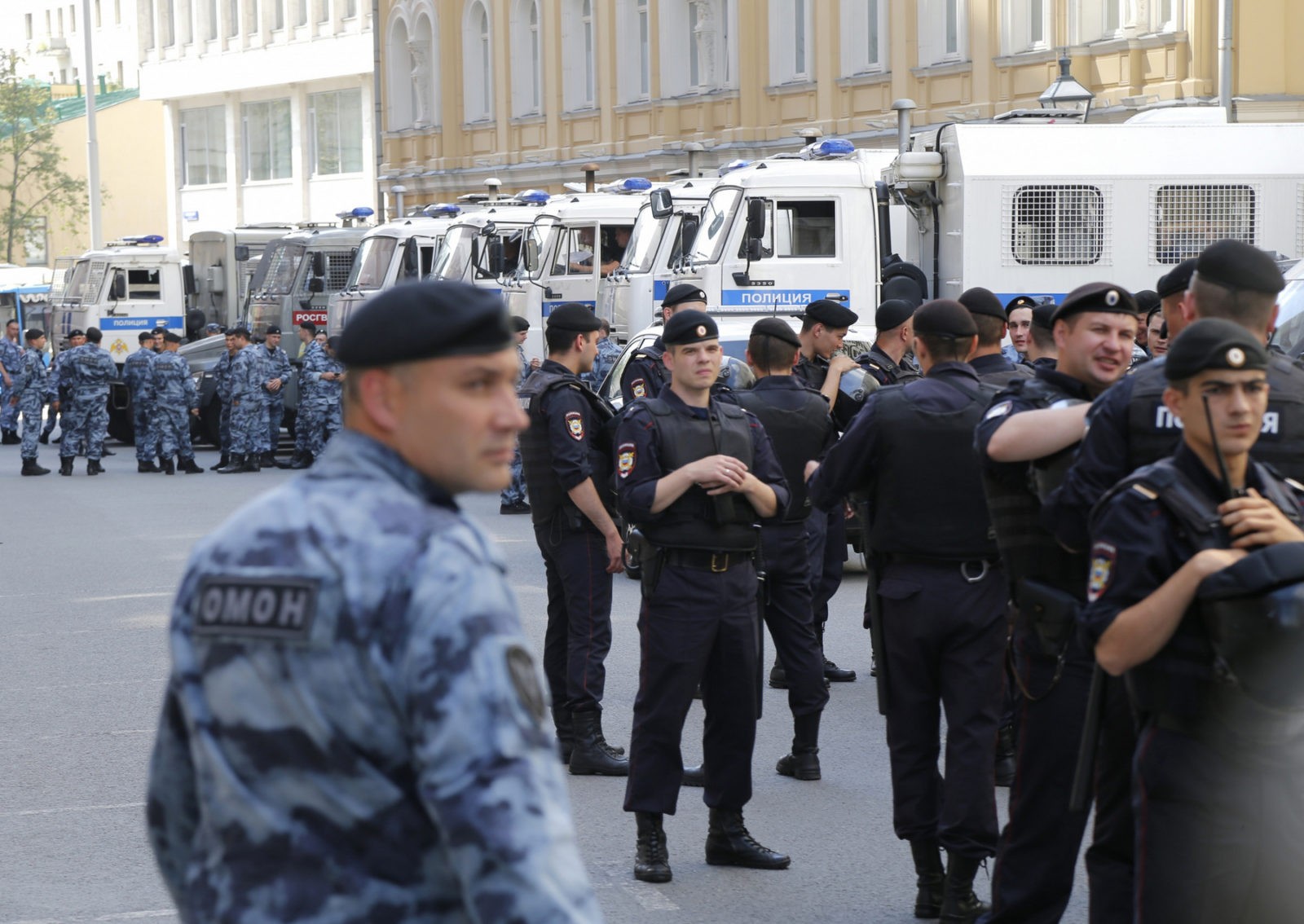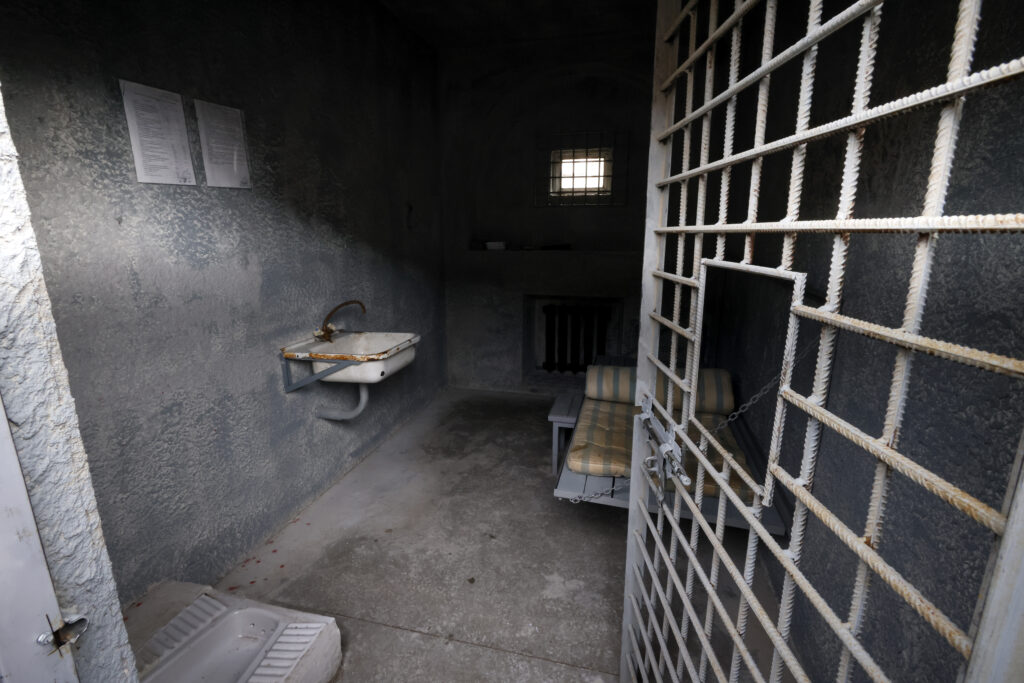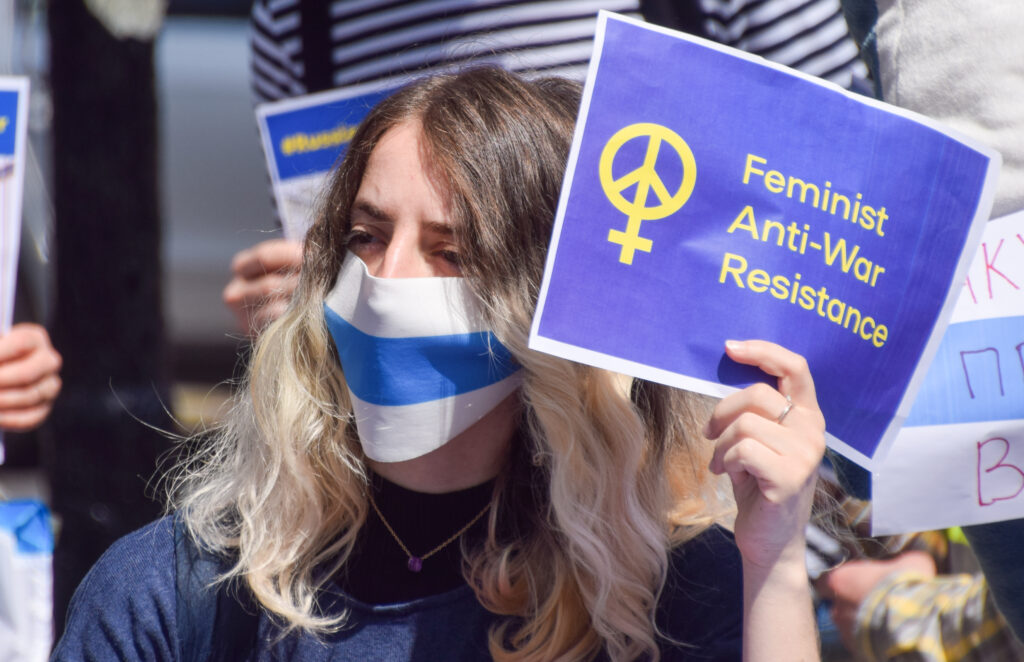Every year, 800 employees of Russia’s law enforcement agencies are convicted for torturing people. They work for the Ministry of Internal Affairs, the Federal Penitentiary Service, the Ministry of Defence, and other state institutions. In each case, the victim or victims have the constitutional right to compensation for physical or moral damage caused by the criminal acts of a state official.
In 2003, the Plenum of Russia’s Supreme Court made an important ruling. It decreed that, as soon as a conviction for torture becomes enforceable, the court «does not have the right to enter into a debate about the defendant’s guilt» when considering the plaintiff’s claim, but can «only resolve issues related to the amount of compensation.»
According to current legislation, a victim of torture can receive monetary compensation from both the perpetrator and the state. At Zona Prava, the human rights organisation where I work, which focuses on Russia’s criminal justice system, we always file lawsuits concerning federal ministries, from the Ministry of Internal Affairs to the Federal Penitentiary Service and Ministry of Defence.
Why? Because it’s easier and faster that way. After all, somebody convicted of torture may end up in prison, not have a permanent job, or have young children. All these circumstances and others can complicate the victim receiving the decreed sum of compensation in a timely fashion.
Within three months of receiving the executive documents, the state transfers funds from the national treasury to the plaintiff’s bank account. Practically no problems arise in this process. Even when these transfers are made at the end of the year, when there is less money available in the state budget, any issues are quickly resolved.
Article 1081 of Russia’s Civil Code allows for the state to seek recourse on its own behalf in cases where a victim has already received a payment in recognition of having suffered from illegal actions by a state official. This also applies to rulings by the European Court of Human Rights (ECHR). That is to say, the state can demand that a police officer convicted of torture compensate the state for the damages it has had to pay to his victims on his behalf.
In 2009, the Moskovsky District Court in the city of Nizhny Novgorod fully satisfied a recourse lawsuit brought by the state prosecutor against two former police officers, who had served four years in prison for the torture of their colleague, traffic policeman Alexey Mikheev.
The ECHR fined the Russian government 250,000 Euros for violating the victim’s right to be treated in accordance with article three (on the prohibition of torture) and article 13 (on the right to an effective means of redress) of the European Convention on Human Rights. The sum of 8.5 million rubles was thereby demanded from the convicted police officers. Ten years on, this remains the largest compensatory payment ever secured on a victim’s behalf in Russia.
Over those years, the Ministry of Finance was exclusively responsible for considering compensation for moral damage caused by state officials’ criminal acts and petitions filed by their victims. The ministry itself regularly transferred compensatory sums to the plaintiffs. However, there was no public information about the state’s attempts to demand compensation for these sums of money from guilty employees of the Ministry of Internal Affairs.
For example, on three occasions (in 2009, 2012, and 2016), the Kazan Human Rights Centre prepared documentation, including a list of all torture cases handled by the organisation’s lawyers, and appealed to the regional prosecutor in Tatarstan to resolve the issue, arguing that lawsuits over recourse of state funds in such cases were a matter of public interest for the Russian Federation.
Every time, the heads of the prosecutor’s supervisory authority responded that they, too, were interested in such claims and instructed their subordinates to «synthesise judicial and investigative practice.» However, the human rights defenders have to date still not received any information about the court decisions in question.
In November 2015, the Plenum of Russia’s Supreme Court published its Ruling No. 50, which made the defendant in such cases the particular state institution (i.e. the recipient of funds from the state’s budget) to which the accused employee belonged. The court indicated that, upon concluding an application for damages, «…to recover the amount from the Russian Federation represented by (for example) the Ministry of Internal Affairs, at the expense of the state treasury of the Russian Federation.»
Consequently, over the years which followed, lawsuits for torture committed by law enforcement officers were conducted with a more appropriate judicial practice: the financial burden for these crimes was transferred to the Ministry of Internal Affairs, Federal Penitentiary Service, and other state institutions.
Unlike the Ministry of Finance, the Ministry of Internal Affairs has begun to actively make use of the opportunity to file redress claims against its former employees. For example, the Ministry of Internal Affairs was able to extract monetary compensation from its convicted staff in connection with the torture scandal at Kazan’s Dalny Police Station in 2012. Meanwhile, in the neighbouring region of Mari El, a local court ordered a former policeman (who beat a man so badly he became sterile) to pay 200,000 rubles to his employer.
Moreover, the position of the Ministry of Internal Affairs’ Department for Treaties and Law holds that its various branches across the country are actually legally obliged to open lawsuits against employees whose actions or negligence caused damage to the ministry and its operations.
This spring, the Pervorechensky District Court in Vladivostok satisfied the claims made by the Ministry of Internal Affairs. The three former detectives, who had knocked out a man’s teeth in an attempt to force him to confess to killing his parents, must now pay a total of 3.3 million rubles in damages. In this illustrative case, not only was the sum of 1.1 million rubles collected from each of the detectives to compensate for the financial losses of their former department, but they were also sentenced to prison terms. Although the case only attracted limited media attention, it is our opinion that more active media coverage could help prevent future abuses by law enforcement officials.
However, if a police officer’s guilt is established by a court verdict on the federal (national) level, the Ministry of Internal Affairs also files redress claims (other law enforcement departments, such as the Federal Penitentiary Service and Ministry of Defence, are seriously trailing behind in this regard.)
Unfortunately, things are quite different in cases where an ECHR ruling is not matched by a corresponding guilty verdict by the Russian courts. Admittedly, the Russian government does still provide monetary compensation to victims whose complaints are upheld by the European court. However, the immediate culprits in Russia will go unpunished, and the state budget is not compensated for the damage payments.
For example, in December 2016 Zona Prava appealed to the Prosecutor General’s Office requesting that staff of the Federal Penitentiary Service be charged 22 million rubles in accordance with the ECHR’s rulings over the previous three years that the conditions of its facilities amounted to torture. The list of cases also included that of the former mayor of Makhachkala, Said Amirov, who received a life sentence in 2015 and subsequently demanded 15,000 Euros in compensation for moral damages.
Nevertheless, the responses provided by regional prosecutors’ offices declared that inspections of penitentiary facilities by supervisory authorities did not discover any violations (including those which might have had a causal link to the specific cases mentioned), in the conduct of prison officials.
The stance taken by Russian state institutions on the matter can be explained by their reluctance to conduct comprehensive investigations into allegations of torture; they expect that not every victim will be able to file a complaint with the ECHR in Strasbourg. And in any case, even if the ECHR declares a violation of the convention on human rights, it is simpler for the Russian state to simply pay some money and forget about the case forever.
For that reason, we support legislative moves which would oblige the authorities to thoroughly investigate all such cases, especially where a violation of the second or third articles of the convention on human rights is concerned. Furthermore, the identity of the state officials responsible for these crimes must be firmly established and financial compensation demanded from them.
Why, then, has the Russian state stepped up its efforts to recover money from its convicted law enforcement employees? An important reason is probably the most obvious of them all: the state budget has to allocate hundreds of millions of rubles towards compensating the victims of torture. Taking into account other violations committed by law enforcement and state officials, the overall bill must already amount to billions.
But a less obvious reason lies in the Russian state’s attempts to maintain the facade of the rule of law before the watchful eyes of international organisations. Thus, while Russia officially recognises article three of the European Convention on Human Rights (on the prohibition of torture), it has refused a request by a UN special committee to create a separate article against torture into its criminal code on six occasions.
Our lengthy experience working on the issue has demonstrated that while the Russian authorities comply with ECHR rulings regarding the transfer of money to the victims of torture, they almost never resume investigations into denied or closed cases on police violence.
In conclusion, Russia’s law enforcement system turns out to be merciless both towards those it has sentenced, and, once it has washed its hands of them, its very own employees. It is ready to tolerate the largest fines against former members of staff whom it has dismissed or prosecuted for their acts, even in cases where the European Court is involved. But if the employees are still «part of the team,» they will be protected by all available means.










